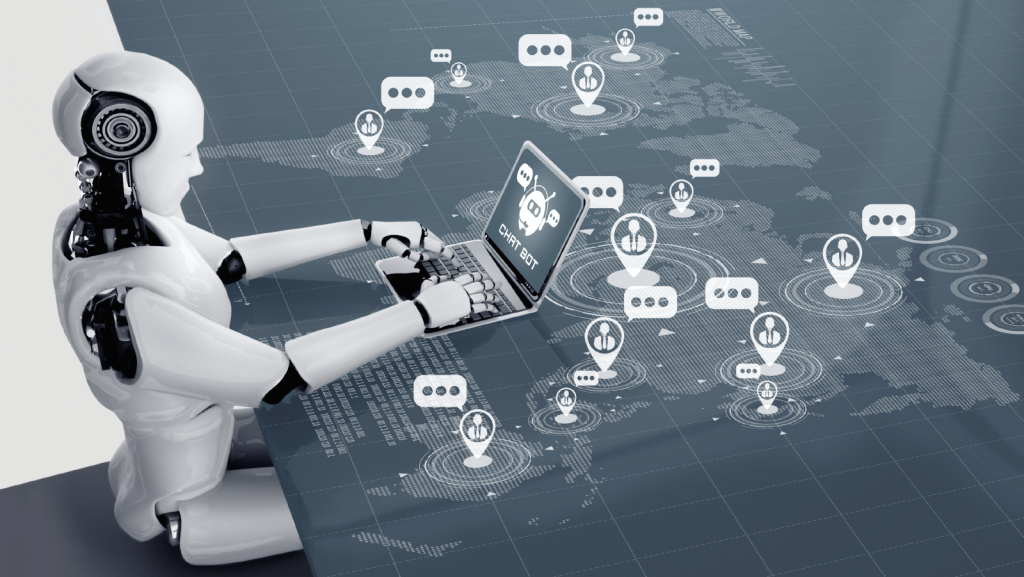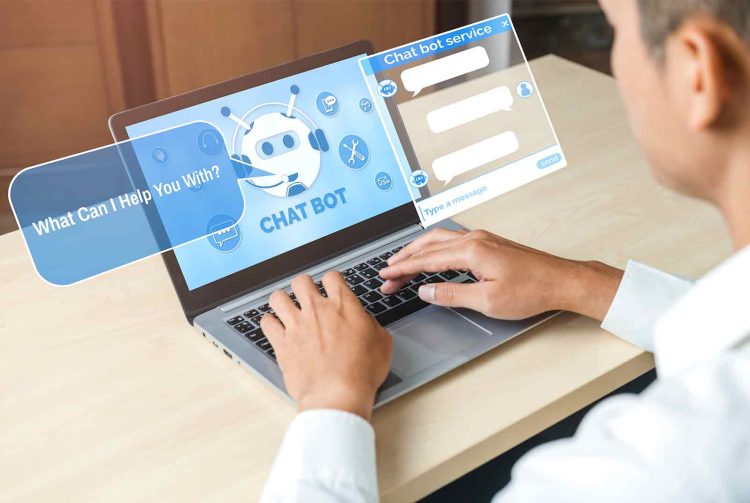Introduction:
Customer service has long been a critical function for businesses, offering direct communication with customers and resolving issues that may arise. Over the years, technological advancements have gradually enhanced how businesses interact with their customers, from the introduction of automated phone systems to online chatbots. However, the rise of artificial intelligence (AI) in recent years has brought the question to the forefront: Can AI replace traditional customer service jobs in the near future?
AI has already begun to play a significant role in customer service, with many companies implementing chatbots, virtual assistants, and automated response systems to handle customer inquiries. As AI technologies, particularly machine learning and natural language processing (NLP), continue to evolve, the scope of automation in customer service is expanding. But will AI completely replace human workers in this field? Or will it augment the human workforce, enabling customer service representatives to focus on more complex and nuanced tasks?
In this article, we will explore the current impact of AI on the customer service industry, examine the potential for AI to replace traditional customer service roles, and discuss the challenges and opportunities that arise from this technological shift.
1. Current Role of AI in Customer Service
AI has already made a significant impact in the customer service sector, helping businesses improve efficiency, reduce costs, and enhance the overall customer experience. By automating routine tasks and providing quick responses to common inquiries, AI technologies are complementing human customer service representatives, enabling businesses to handle large volumes of requests more effectively.
1.1. Chatbots and Virtual Assistants
One of the most common uses of AI in customer service is through chatbots and virtual assistants. These AI-powered systems are capable of handling customer queries in real-time, providing instant answers to frequently asked questions (FAQs), processing transactions, and offering support for basic troubleshooting.
For example, many e-commerce platforms use chatbots to assist customers with order tracking, return processes, and product recommendations. AI chatbots can handle simple inquiries quickly and efficiently, ensuring that customers don’t have to wait for long periods to receive a response. This improves customer satisfaction and frees up human agents to focus on more complex issues.
1.2. Automated Call Systems
AI is also being utilized in automated phone systems, which can interact with customers using natural language processing (NLP). These systems can route calls to the appropriate department, collect information from customers, and even resolve basic issues like resetting passwords or updating account details without the need for human intervention.
In some industries, AI-powered call centers are already handling thousands of customer calls simultaneously, reducing the need for large call center teams. This leads to significant cost savings for businesses, especially in high-volume customer service environments like telecommunications and utilities.
1.3. Sentiment Analysis and Personalization
AI tools can analyze customer interactions to determine their sentiment and tailor responses accordingly. By analyzing the tone of voice, word choice, and context of a conversation, AI can identify when a customer is frustrated or dissatisfied, prompting a human representative to take over if needed.
Moreover, AI is increasingly being used to personalize customer service interactions. By analyzing past purchase history, preferences, and behaviors, AI can offer more personalized recommendations or solutions, enhancing the customer experience. This can create a more seamless and efficient process for customers, while still leveraging human expertise when necessary.
2. The Potential for AI to Replace Traditional Customer Service Jobs
As AI technologies continue to improve, the potential for them to replace traditional customer service roles is becoming a significant topic of debate. While AI can handle many of the repetitive and low-complexity tasks that human workers traditionally performed, the question remains: will AI be able to replace humans entirely in customer service roles, or will there always be a need for human interaction?
2.1. Routine Tasks and Low-Level Inquiries
AI is particularly well-suited for handling routine tasks and low-level inquiries. Customers often have similar, repetitive questions, and AI-powered systems can provide immediate responses without human involvement. Tasks such as order status updates, password resets, basic troubleshooting, and product information requests can all be easily automated.
As a result, AI is increasingly replacing human customer service agents in these areas. For example, many companies have implemented AI-driven chatbots to handle live chat inquiries on their websites. These bots can respond to a vast array of common questions, reducing the need for human agents to address basic inquiries.
2.2. Complex Issues and Emotional Intelligence
While AI is highly effective in handling routine tasks, it currently struggles with more complex issues that require emotional intelligence, empathy, and nuanced problem-solving. Human agents excel at handling sensitive situations, such as addressing customer complaints, diffusing frustrated customers, or offering personalized advice for unique problems.
For example, when a customer is upset about a delayed order or a faulty product, they often seek a sympathetic and understanding response. While AI can analyze sentiment and detect frustration, it lacks the emotional intelligence and empathy that human agents can provide. This is a crucial aspect of customer service that AI is unlikely to replicate in the near future.
Additionally, many customers prefer speaking to a human when their issue is complicated or requires a personalized solution. Customers may feel that they are not being heard if their concerns are being handled by an AI system, especially when the problem is not easily solvable by a script or algorithm.
2.3. Hybrid Model: AI Augmentation Rather Than Replacement
Rather than fully replacing human customer service representatives, many businesses are adopting a hybrid model, where AI tools assist human agents in their roles. In this model, AI handles routine inquiries and tasks, while human agents are called upon to resolve more complex, emotional, or nuanced situations.
For example, AI may provide a first point of contact, guiding the customer through troubleshooting steps, gathering information, or answering FAQs. If the issue is more complex, the AI can seamlessly transfer the customer to a human representative who can take over and resolve the issue with empathy and personalized attention.
This approach not only increases efficiency but also allows human agents to focus on high-value tasks, reducing burnout and improving job satisfaction. By using AI to handle routine inquiries, businesses can streamline operations while still providing the human touch that customers value in more challenging situations.

3. Challenges in Replacing Customer Service Jobs with AI
While the potential for AI to replace customer service jobs exists, there are several challenges that need to be addressed before widespread adoption of fully automated customer service systems can occur.
3.1. Customer Resistance to AI
One significant challenge is customer resistance to interacting with AI systems. Many customers still prefer speaking to a human agent, especially when they have a problem that requires personalized attention or empathy. Studies have shown that customers are more likely to feel satisfied with their service when they speak with a human representative rather than an automated system, particularly for complex or emotionally charged issues.
In some industries, customers may have concerns about the accuracy of AI-generated responses or the lack of personalization in automated interactions. For businesses, it’s essential to balance the benefits of AI automation with customer preferences and expectations. Some customers may find interacting with AI frustrating or impersonal, potentially leading to dissatisfaction and brand damage.
3.2. Limitations of AI Technology
Despite significant advancements in AI, there are still limitations to the technology that hinder its ability to fully replace human workers in customer service. AI systems may struggle with understanding context, detecting sarcasm, or handling ambiguous situations. Natural language processing (NLP) technologies are continually improving, but they are not yet perfect in understanding the subtleties of human communication, particularly in diverse languages and dialects.
Moreover, AI systems rely on vast amounts of data to function effectively, and any gaps or biases in the data can lead to inaccurate or inappropriate responses. Ensuring that AI models are trained on diverse, representative datasets is essential to avoid issues with fairness, accuracy, and inclusivity.
3.3. Ethical Concerns and Job Displacement
The rise of AI in customer service raises ethical concerns, particularly regarding job displacement. As AI systems become more capable, there is the potential for job losses in sectors like call centers and retail customer service. While AI can create new jobs in tech, data science, and AI development, workers in traditional customer service roles may face challenges in transitioning to new positions.
Governments, businesses, and educational institutions will need to address these concerns by investing in retraining and upskilling programs for displaced workers. This will help ensure that workers are prepared for the digital economy and can thrive in roles that require higher-level cognitive and emotional skills, which are less likely to be automated.
4. The Future of AI and Customer Service Jobs
Looking ahead, it’s likely that AI will continue to play a central role in reshaping customer service, but it will not fully replace human workers in the near future. The most likely outcome is a hybrid model, where AI and human agents work together to provide the best possible customer experience. AI will automate routine tasks, handle high volumes of simple inquiries, and assist human agents in resolving complex issues. Meanwhile, human agents will focus on tasks that require empathy, critical thinking, and a personalized touch.
As AI technology continues to advance, it may take on a more significant role in customer service, but there will always be a need for human involvement, especially in industries that rely heavily on trust, relationships, and emotional intelligence. The future of customer service will likely be one where AI enhances human capabilities rather than replacing them entirely.
Conclusion:
AI is undoubtedly transforming the customer service industry by automating routine tasks, improving efficiency, and enhancing customer experiences. However, while AI has the potential to replace some aspects of traditional customer service jobs, there are significant limitations to its capabilities. The need for human empathy, critical thinking, and personalized attention ensures that human agents will continue to play an essential role in the customer service ecosystem.
In the near future, AI is more likely to augment traditional customer service roles rather than replace them entirely. By leveraging AI to handle repetitive tasks, businesses can improve efficiency and free up human agents to focus on more complex and nuanced customer interactions. With the right balance, AI and human collaboration can create a customer service experience that is both efficient and empathetic.











































